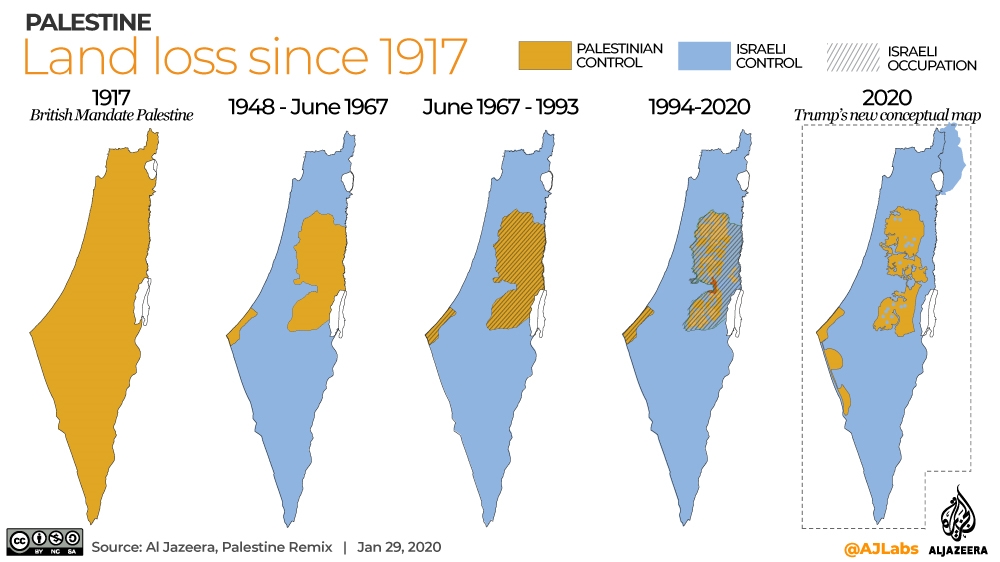We are posting a report from the Haaretz Israeli newspaper on a scheme to “promote(d) the legalization of outposts and their connection to the electricity grid.” How can these outposts in the occupied West Bank be legalized by linking to the settlements, which are themselves illegal and in violation of international law?

(July 12) – In recent weeks, the World Zionist Organization Settlement Division has mapped dozens of outposts to determine where improvements in security can be made, and where help in planning is required ahead of legalizing them.
The World Zionist Organization Settlement Division is set to invest 29.5 million shekels ($8.5 million) to connect unauthorized West Bank outposts to the electricity grid and prepare master plans ahead of authorizing them as proper settlements.
The money for the project, which will also cover the installation of security cameras, comes from coalition funding the Yamina party received over the past year. The transfer of the funds is part of the policy set in place by Yamina’s chairman, former Prime Minister Naftali Bennett, as part of his past role as settlement affairs minister. The public can comment on the Settlement Division’s plan until July 12.
The budget item is a new one in the Settlement Division’s work plan for 2022. Establishing electrical infrastructure in outposts requires government authorization, and the defense minister must also approve the linkup. However, a security source told Haaretz that this approval is not expected any time soon.
In recent weeks, the Settlement Division has mapped dozens of outposts to determine where improvements in security can be made (such as cameras or firefighting equipment), and where help in planning is required ahead of legalizing them. A source in the Settlement Division told Haaretz that the Civil Administration will be required to approve the infrastructure in each outpost, and the Defense Ministry will decide what security improvements are needed at each site.
According to Bennett’s policy statement to the Settlement Division, issued in May, the division must provide “a response to the humanitarian and security needs of the young settlements and promote their legalization in keeping with all laws.” Sources in the settlements told Haaretz that Yamina promised many months ago to invest the money in the outposts, but legal impediments had prevented this.
Support of the outposts by the Settlement Division is nothing new. In the past, Haaretz reported that the division assisted in establishing outposts by granting loans. A Haaretz investigation revealed that the division granted dozens of loans for the establishment and development of illegal outposts, farms and vineyards throughout the West Bank. In 2019, the Calcalist business daily reported that the division funded projects in outposts at more than 2 million shekels (roughly $570,000).
In recent years, the Forum for Young Settlement has promoted the legalization of outposts and their connection to the electricity grid. These are outposts that are currently unofficially linked to the grid by means of a connection to an existing settlement. Consequently, the electricity supply to the outposts is unstable. Many outposts are quite bourgeois in character, with spacious houses, while in others, people live in prefabricated housing.
A number of plans have been presented in recent years to legalize outposts. For example, in 2020, then-Settlement Affairs Minister Tzachi Hanegbi presented a government decision to legalize 46 outposts, some as neighborhoods of existing settlements and some as new settlements. Similar decisions were rejected by the government, and the few outposts that were approved, such as Havat Gilad, encountered obstacles over the years due to various planning issues.
The legalization of some of the outposts was complicated because the access road to them passes through privately owned Palestinian land. Nevertheless, over the years, many settlements were legalized as neighborhoods of existing settlements. Over the past year alone, the Bennett-Lapid government legalized three outposts in this way.
The Settlement Division is part of the World Zionist Organization, which acts as an operational arm of the Israeli government, with the Settlement Affairs Ministry holding responsible for it. The ministry was established in 2020 by Benjamin Netanyahu’s government and was originally intended to be headed by a minister from Yamina, as the ministry dealing with an issue close to the hearts of its national religious voters. However, Yamina did not join that government, and the portfolio was given to Likud’s Tzipi Hotovely. Three months later, she was replaced by Hanegbi in that ministry.
Since the establishment of the Bennett-Lapid government in June 2021, the ministry has been without a minister or a director general, and Bennett held the post of minister under the aegis of the Prime Minister’s Office. In addition to responsibility for the Settlement Division, the ministry is also in charge of pre-military preparation courses and “mission groups” that live in and work with settlements on education, culture and welfare. Settlers have not been happy with the ministry, which they say does not provide enough funding or powers.
One project that passed through the ministry is the 18.6 million shekels allocated to regional councils in the West Bank to establish departments to follow up and report on illegal Palestinian construction in Area C, which is under full Israeli civil and military control. The division’s work plan for 2022 also includes the development of “disturbed” areas – for example, the establishment of pre-military courses in abandoned army camps in the West Bank, the Galilee and the Negev. The division also works to increase Jewish population in these areas.
In addition, the division will allocate 18 million shekels to establish two temporary neighbourhoods around Arad in the Negev, in a plan to establish new Jewish communities in this area. This funding, to establish seven new communities in the Negev, was approved by the government in March.
Hagar Shezaf, Haaretz
